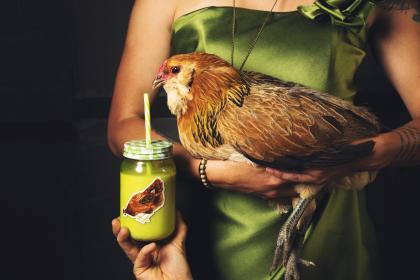 In what can be a cold, hard world, it’s not unusual to find people who openly admit to a preference for animals over people. It’s true we humans can leave a lot to be desired. Sometimes we’re not that likeable. We can disappoint and frustrate, disagree, disrespect and devalue on top of simply being generally unpleasant – and that can be found just using public transport!
In what can be a cold, hard world, it’s not unusual to find people who openly admit to a preference for animals over people. It’s true we humans can leave a lot to be desired. Sometimes we’re not that likeable. We can disappoint and frustrate, disagree, disrespect and devalue on top of simply being generally unpleasant – and that can be found just using public transport!
Pets on the other hand just love you. Walking in the door on arriving home, the boundless, uncomplicated love and adoration of a beloved cat or dog can lift a flagged spirit in a nanosecond. Yes, pets are needy. Yes, they need to be fed at regular times and to be walked and patted and interacted with, but pets are loving and loyal. They always appreciate whatever you can give – unlike the humans you may co-habit with. So it’s not surprising that pets often become honorary members of the family and sometimes, especially if they are your sole companion, come to matter more to you than anyone else.
But is it possible to love a pet too much? To be too over-attached? Is there a line that should not be crossed? When does devotion to your pet become unhealthy?
1. When your or your pet’s health or quality of life suffers:
The classic example of this is prolonging the life of an animal that has a terminal illness or is in pain. The unexpected loss of a pet can be emotionally devastating when they are the centre of your world. If the vet tells you the kindest thing to do is end their distress by euthanasia and you can’t bring yourself to do it, that it is a pretty clear sign that you have a problem. If you truly love your pet, you need to do the best you can for them.
2. When your partner or spouse says: ‘It’s me or the pet’
You know that things have got out of kilter. Either the relationship isn’t what it once was and you’d rather spend time with the pet, or animal behavioural issues have irritated and frustrated your partner to such an extent, they want to call it a day. Having the cat or dog sleep between you isn’t great for your relationship either, especially if they are large and smelly. If these words have been said to you, it is time to evaluate what is most important and make some changes.
3. When you turn down a growing number of social invitations because you’d rather stay home with the dog/cat/pet
It’s a sign that you need to get out a bit more and meet some new people. Social contact with other people is important as well. At the end of the day, there needs to be a balance.
 4. When you force your pet into the limelight despite the fact they clearly hate it.
4. When you force your pet into the limelight despite the fact they clearly hate it.
Pet birthday parties, pet clothes, trimming or dying your pet’s hair as a fashion statement… what’s one pet’s joy is another’s torment. If your pet clearly hates something that you force them into (that is not necessary for their health like a bath or being wormed), it’s for your need or entertainment, not theirs and maybe you need to find a new hobby.
5. You become a little bit scared of displeasing the dog
Dogs have a pack mentality which requires you to be Top Dog or Alpha at all times. To be secure, they need you to lead the way. At no point, should they control you or determine what you do. This means they sleep where you want them to sleep, and they behave in a socially acceptable way at all times.
If you know you are over-attached to your pet, common sense steps you can take are:
- Talk to a trusted friend or vet and maybe even a counselor to nut out changes you’d like to make;
- Start with one small change. It takes time to change a bad habit. The most important thing is to begin.
- Do something fun and/or social at least once or twice a week.









Join the Discussion
Type out your comment here:
You must be logged in to post a comment.